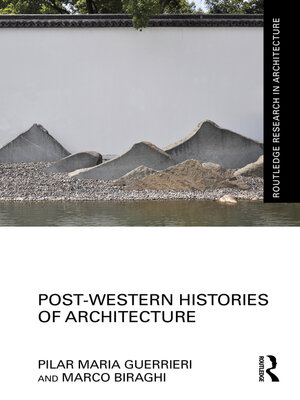Post-Western Histories of Architecture
ebook ∣ Routledge Research in Architecture
By Pilar Maria Guerrieri

Sign up to save your library
With an OverDrive account, you can save your favorite libraries for at-a-glance information about availability. Find out more about OverDrive accounts.
Find this title in Libby, the library reading app by OverDrive.



Search for a digital library with this title
Title found at these libraries:
| Library Name | Distance |
|---|---|
| Loading... |
This book seeks to provide an alternative post-Western perspective to the history of contemporary architecture. It puts forward detailed critical analyses of various areas of the world, including Europe, Latin America, Africa, China, Australia, India and Japan, where particular movements of architecture have developed as active 'political acts'.
The authors focus on a broad spectrum of countries, architectures and architects that have developed a design approach closely linked to the building context. The concept of context is broad and includes various economic, social, cultural, political and natural aspects. In all cases, the architects selected in this book have chosen to view context as an opportunity. However, each architect has considered certain specific aspects of context: some have been very attentive to the social context, others to material aspects or typological issues, and still others to aspects related to political visions or economic factors. The analysis critically highlights interesting, creative and respectful design approaches towards local conditions, such as sustainability in Nordic Europe, climate-conscious design in Africa, and the 'bottom-up' sensitivity of India. The book's main aim is to retrace, through both theoretical arguments and case studies, the debate that focuses on politics and the environment. Thanks to its valuable examples, this book strives to make a conscious contribution to establishing a bulwark against the current 'flattening-out' processes that architecture is experiencing.
This book will be of relevance to researchers, teachers and students interested in the history of architecture, architecture and planning, and postcolonial studies.







